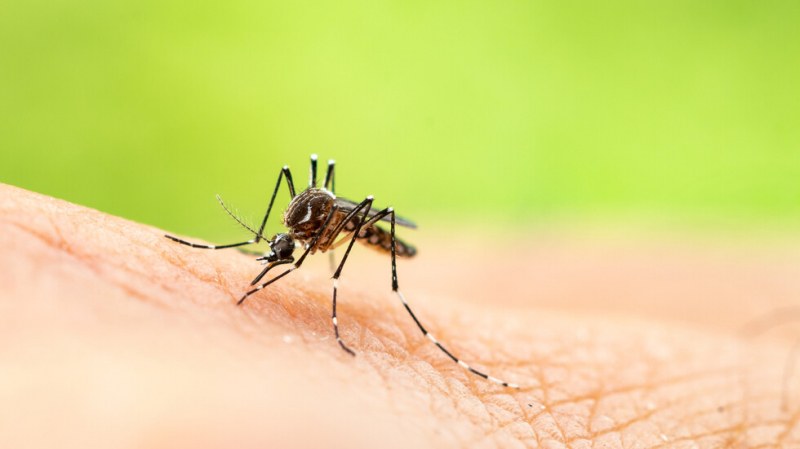Mosquitoes are two-winged insects that are large enough to be seen with the naked eye. Male mosquitoes usually live about a week, while females can live several months.
Mosquitoes can be small and short-lived, but this does not prevent them from causing harm to humans. From itchy bites to the diseases they can transmit, mosquitoes are often annoying, but sometimes deadly.
What are the usual habitats and habits of mosquitoes?
Mosquitoes live in grass and shrubs located near areas where people live. Their favorite breeding ground is stagnant water. Male mosquitoes do not bite humans, unlike females.
While both sexes in mosquitoes consume plant nectar and water, females also need blood to reproduce. Mosquito bites usually cause itching, but they can also spread disease between animals and humans, as well as from one person to another.
How do mosquitoes bite?
Female mosquitoes have long trunks that allow them to pierce the skin and feed on blood. When bitten, mosquito saliva is injected into a person’s body as it sucks blood. Mosquito saliva contains proteins to which most people are allergic. A person’s immune system is triggered, causing a red swelling accompanied by itching.
Mosquitoes choose their prey based on the aroma of carbon dioxide and other substances in human sweat.
What does a mosquito bite look like?
Almost as soon as a mosquito bite occurs, a round bump can be seen. In some cases, it is possible to see a small dot in the center of the swelling. Soon after, the swelling becomes red and hard. It is not uncommon for a person to receive several bites at the same time.
With an impaired immune system, a person may experience a more severe reaction, such as hives, severe swelling and redness, or swollen lymph nodes. Children often get a stronger reaction to bites than adults.
What does a mosquito bite feel like?
A person may feel a sting when a mosquito pierces the skin to suck blood. Then the most annoying symptom of a mosquito bite is itching.
In most cases, the reactions to mosquito bites are quite mild and disappear within a few days. They can be more disturbing for children and people with impaired immune systems. In rare cases, a more severe allergic reaction may occur, causing body aches, headaches and fever.
How is a mosquito bite treated?
The treatment of mosquito bites consists of washing the area with soap and warm water. Over-the-counter painkillers, antihistamines, or topical antipruritic drugs may also be used to control pain and itching. Applying an ice pack to the skin can also relieve itching. A child with itchy mosquito bites should be checked for fingernails and reminded not to scratch.
It is rare for a person to experience a severe allergic reaction to a mosquito bite. If you develop body aches, headaches or fever after a bite, you need to see a doctor. These can be symptoms of a severe reaction from a bite or a mosquito-borne disease.
What diseases can mosquitoes transmit?
Mosquitoes can carry viruses, bacteria and parasites in their saliva. When they bite a person, they can transmit these pathogens to his body, causing severe and even life-threatening illness.
For example, mosquitoes are known carriers of malaria, West Nile virus, dengue fever, yellow fever, and some viruses that cause encephalitis. This makes mosquitoes one of the deadliest animals on the planet.
Some diseases cannot be spread by mosquito bites. For example, there is no risk of contracting HIV or hepatitis from a mosquito bite.
How can you prevent mosquito bites?
Mosquito bites cannot be completely prevented, but the chances of being bitten may be reduced. Mosquitoes breed in water, so it is useful to remove stagnant water near homes.
It is also important to keep the grass and vegetation well trimmed close to home. It is advisable to put mosquito nets so that they cannot enter the home. And when a person is outside in wooded or grassy areas, it is advisable to wear long sleeves and pants, as well as use an insect repellent.
To prevent mosquito-borne diseases, it is important to make sure you have been vaccinated before traveling to foreign countries. Your doctor may also prescribe oral medications to prevent malaria or other illnesses.









